British Books
Okay so after a 12 year gap I've finally decided to start my A Song of Ice and Fire re-read. Only difference between now and 12 years ago is that I have two kids, so I imagine this might take a while. So, I'm reading A Game of Thrones. I'm only a few chapters in, but I've already fallen in love with G.R.R's writing style. The first few chapters have so much work to do to set the world up, but he handles it so well it's almost unnoticeable when a character is delivering a lore dump. What are you reading?
 www.thetimes.com
www.thetimes.com
cross-posted from: https://feddit.uk/post/18077375 > > A well-known comics writer once told me that the mistake almost every conventional novelist who takes a turn writing comics initially makes is trying to put too many words into a panel. I wonder whether the opposite applies to writers who hop art forms in the other direction: freed at last from the rigid discipline of the speech bubble, they go bananas. > > > >When Alan Moore, the graphic novelist best known for Watchmen, wrote his 2016 novel Jerusalem it was 1,200 pages long. Although his latest book, The Great When — the first in a projected series of “Long London” novels — is a manageable 300-odd pages, the style has something about it of a man who has spent a career writing in a medium where you don’t get to use similes or adjectives much and is now making up for lost time. > > > >So, when a character smiles, we discover that “her smile was sunrise on a renderer’s yard, its dire light creeping into every crevice and uncovering each gruesome spectacle. The corners of her mouth crawled back towards pendulous ears, exposing the magnolia cemetery of her dentition.” > > > > ... > > > > The Great When, then, is both gothic and baroque. But so is its subject: the jostling, chaotic, crosspatch, antic and overstuffed city where it is set. It’s 1949. Moore’s version of postwar London is a landscape of bombsites furzed with wildflowers (“London rocket”), smoky pubs, voluble whelk-vendors, Oxo ads, Lyons Corner Houses and men in fawn raincoats, where a cup of weak tea and a sausage sandwich or a dinner of pilchards on toast is never far away. > > > > ... > > > > The plot kicks off when Dennis is sent to Soho to collect a handful of old Arthur Machen editions from a dealer. He returns to Coffin Ada to discover that, slipped among these volumes, is a copy of A London Walk by the Rev Thomas Hampole. Coffin Ada goes nuts. A London Walk is a book that shouldn’t exist — a book that appears in one of Machen’s stories. It has come from Somewhere Else. And it’s trouble. > > > > The premise of The Great When is that the London we know is shadowed by — or, to be more precise, is the shadow of — a boisterous and dangerous eldritch counterpart, The Great When or Long London, peopled with hallucinatory demigods. The unfortunate or deranged can tumble into Long London through hidden portals when they’re not paying attention. Worse, other things sometimes tumble out. The Ripper murders, we learn en passant, were the result of a “Pope of Blades” (a hideous insectoid thingy) escaping into our London in 1888. The book that shouldn’t exist belongs to that realm, and if it isn’t returned quickly something very bad will happen. The last time a book escaped, the person into whose possession it came was turned inside out. > > > > ... > > > > The cast hops in and out of Long London — and in and out of their wits. It’s a romp, and it’s full of loving attention to the past. That postwar London is deeply imagined and Moore’s literary influences — as well as Machen, he tips the hat to Iain Sinclair and Michael Moorcock in an afterword — are warmly acknowledged. > > > >As for the style, the reader will find of it, I think, what Dennis finds of Machen: “At first, he struggled with what he perceived as stuffiness in the tale’s presentation, although by the time he’d read a page or two, the burnish of its language and its atmospherics had seduced him.” Just like the old pulps that are so close to the author’s heart (torn pages of Sax Rohmer people the gutter outside Ada’s shop), there’s a delirious and generous campness to The Great When. Freed from the tyranny of the speech bubble, you sense Moore is really, really having fun. > > [Archive](http://web.archive.org/web/20240929015153/https://www.thetimes.com/culture/books/article/great-when-alan-moore-review-kmmhf288r)
 www.theguardian.com
www.theguardian.com
cross-posted from: https://feddit.uk/post/17881805 > >A mysterious cosmic emblem hangs over the entrance to a building in Bloomsbury, at the heart of London’s university quarter. Depicting concentric circles bound by intertwined arcs, it represents the four elements, seasons and temperaments, as mapped out by Isidore of Seville, a sixth-century bishop and scholar of the ancient world, as well as patron saint of the internet. What lies within is not a masonic lodge, though, or the HQ of the Magic Circle, but the home of one of most important and unusual collections of visual, scientific and occult material in the world. Long off-limits to passersby, the Warburg Institute has now been reborn, after a £14.5m transformation, with a mission to be more public than ever. > > > >“We are essentially devoted to the study of what you would now call memes,” says Bill Sherman, director of the Warburg. To clarify, the institute is not a repository of Lolcats and Doges, but of global cultural history and the role of images in society, with a dazzling collection ranging from 15th-century books on Islamic astronomy, to tomes on comets and divination, not to mention original paintings used for tarot cards (about which a show opens here in January). At least half of the books can’t be found in any other library in the country. > > > > ... > > > > The expansion has also enabled the full reinstatement of Warburg’s unique cataloguing system, with four floors each dedicated to Image, Word, Orientation and Action – “uniting the various branches of the history of human civilisation,” as his close collaborator, Fritz Saxl, put it, breaking culture free from the confines of its usual disciplinary silos. There are few other libraries in the world where you might open a drawer of photographs marked Gestures, to find thematic folders labelled Fleeing, Flying, Falling, along with Denudation of breast, Grasping the victim’s head, and Garment raised to eyes (Grief). Warburg’s unusual system might not have caught on elsewhere, but it still provides a powerful way for artists, writers and researchers to make unexpected connections and pursue fertile tangents – preceding our world of swiping through hashtags, links and recommended feeds by a century. > > > >“It’s a building filled with literal magic,” says novelist Naomi Alderman, who has spent much time writing here. “A place to sit amid books that are almost definitely emanating auras of sorcery … One brief stroll through the shelves and I always find some new wyrd inspiration.” The reading rooms themselves are still limited to card-carrying researchers, but through the new exhibition and event programme, the public can finally get a taste of Warburg’s weird and wonderful world for themselves.
 www.theguardian.com
www.theguardian.com
> Three screen adaptations of Neil Gaiman’s works have been cancelled or had their production paused amid reports accusing the author of Coraline and The Sandman of sexual misconduct. > >Netflix’s Dead Boy Detectives, based on characters created for DC Comics by Gaiman and Matt Wagner, has been cancelled after one season. Production of the third and final season of Amazon drama Good Omens, based on the 1990 novel by Gaiman and Terry Pratchett, has been paused, according to US website Deadline. > >Meanwhile, development of a Disney film adaptation of Gaiman’s 2008 young adult novel The Graveyard Book has been put on hold. None of the streaming services has confirmed that these decisions were taken because of the allegations, but Gaiman apparently offered to step back from his involvement in Good Omens, according to Deadline. Previously: * [Neil Gaiman denies sexual assault allegations made by two women](https://feddit.uk/post/14189934)
 www.theguardian.com
www.theguardian.com
> George Orwell’s archives provide an invaluable insight into one of the most influential British writers of the 20th century, casting light on how he produced his most memorable books, his sensitivity to criticism, and his fears that legal threats could ruin his work. Now the treasure trove that is the extensive archive of correspondence and contracts amassed by Orwell’s original publisher, Victor Gollancz, could be scattered to the winds in what has been described as an act of “cultural vandalism”. > > Crucial correspondence involving the Nineteen Eighty-Four author and Observer correspondent is being offered for sale on the open market, following a decision in 2018 by the publisher’s parent company to sell the archive because the warehouse was closing. Richard Blair, 80 – whose father Eric Blair wrote under the pen-name George Orwell – is dismayed by the loss: “It’s terribly sad … Once Gollancz material is acquired by private collectors, it could disappear into the ether for ever.” > > ... > > Rick Gekoski, a leading antiquarian bookseller, was asked to dispose of the archive, which included correspondence with Kingsley Amis and Daphne du Maurier, among other Gollancz authors. Last week, he dismissed criticisms of the disposal as “misguided”, saying: “The whole thing was sanctioned by Malcolm Edwards, publishing director of Orion, and it was sold at the request of the board.” In Gekoski’s 2021 book Guarded by Dragons, he wrote: “No one on the Orion board cared where they went, or to whom.” > >He recalled a warehouse full of tens of thousands of volumes as well as dozens of filing cabinets – “rusty and dusty, stuffed with all of the production, editorial and rights files of Gollancz publishers, the vast majority unopened for perhaps 50 years”. > >After he tried in vain to sell the entire archive to various institutions for around £1m, it was divided up between dozens of dealers, private collectors and libraries: “All the board asked us to do was to get rid of as much material as possible… and the rest… had to be thrown away.” > >Jean Seaton, director of the Orwell Foundation, said: “That nobody had opened those filing cabinets for 50 years was because they were idiots and didn’t understand the archive’s value. Why didn’t their board consult experts and historians, who would have understood that they needed perhaps to make some revenue from it, but would have understood the real public worth? Instead, they have dispersed a national archive.”
 www.theguardian.com
www.theguardian.com
> It was 1984, and the publisher Macmillan was holding a small event for booksellers, and had invited a tiny handful of journalists along as well. They would be announcing upcoming titles, trying to get the booksellers excited about them. I was one of the journalists, but I only remember one author and one book from that afternoon. The author’s editor, James Hale, was thrilled about a first novel, which Macmillan would soon be publishing, and which James had discovered on the “slush pile” of unsolicited manuscripts. The author had been asked to say a few words to the assembled booksellers about himself and his book. > > The author had dark, curly auburn hair and a ginger beard that was barely more than ambitious stubble. He was tall, and his accent was Scottish. He told us that he had really wanted to be a science fiction writer, that he had written several science fiction books and sent them out to publishers without attracting any interest. Then he had decided to “write what he knew”. He had taken his own obsessions as a young man, his delight in blowing things up and his fascination with homemade implements of destruction, and he had given them to Frank, a young man who also liked blowing things up but went much further than the author ever had. The author was Iain Banks, of course, and the book was The Wasp Factory. > >The story, he told us, began when Frank’s brother, Eric, escaped from a high-security psychiatric hospital, and let Frank know he was coming home. But, Iain warned us, that wasn’t what the story was about. He told us that he didn’t like telling people what The Wasp Factory was about – but he would tell us. The Wasp Factory, said Iain Banks, with a straight face, was about 250 pages. The 100 booksellers and the half a dozen journalists were charmed and won over. > >The book came out and immediately divided reviewers: some of us loved it while some seemed to feel that they had been personally attacked. Some saw it as an updated gothic romance, some as nothing more than a parade of nastiness, viciousness and monstrous things for their own sake. > > In a stroke of PR brilliance, when the paperback came out, it carried quotes from both kinds of reviews on the cover, alternating those that heralded a remarkable new talent, that applauded the book for its imagination and its imagination and daring, with those that stopped just short of suggesting that the author should be locked up before he wrote another novel.
 www.rollingstone.com
www.rollingstone.com
> Neil Gaiman — the best-selling author whose work includes comic book series The Sandman and the novels Good Omens and American Gods — has denied sexual assault allegations made against him by two women with whom he had relationships with at the time, Tortoise Media reports. > > The allegations were made during Tortoise’s four-part podcast Master: the Allegations Against Neil Gaiman, which was released Wednesday. In it, the women allege “rough and degrading sex” with the author, which the women claim was not always consensual. > > ... > > According to Tortoise’s investigation, K did not file a police report. Scarlett filed a complaint to New Zealand police in October 2022. > > Gaiman told Tortoise that the police did not pursue his offer to assist the investigation regarding the complaint, claiming that this showed the lack of substance of the complaint. But New Zealand police told the outlet it made a “number of attempts to speak to key people as part of this investigation and those efforts remain ongoing,” adding that there are “a number of factors to take into consideration with this case, including location of all parties.” [The Tortoise Investigates series](https://www.tortoisemedia.com/2024/07/03/exclusive-neil-gaiman-accused-of-sexual-assault/) edit: [Archive](https://archive.is/3Woxd)
 www.bbc.co.uk
www.bbc.co.uk
> Novelist and screenwriter Frank Cottrell-Boyce has been announced as the new children's laureate. > >He will take on the role, which involves championing reading and children's books, from this year until 2026. > >Cottrell-Boyce said he was "so proud" to be the new children's laureate, adding: "Writing and reading has transformed my life." > > ... > > "I write children’s books because I think they help build the apparatus of happiness inside us," Cottrell-Boyce said in a statement. > >"I’m privileged to be part of those intimate, crucial, person-forming moments when people share stories with the children in their lives." > >But he also warned the benefits of children's reading had not been taken seriously enough, adding: "We risk losing a generation unless we act." > >Liverpool-based Cottrell-Boyce said his tenure as laureate would be about "urgency", with the intention of "addressing invisible privilege and inequality". > >"It will be about the increasing number of children in poverty being left further and further behind," he said. > >"It will be about calling for national provision so that every child – from their earliest years – has access to books, reading and the transformative ways in which they improve long-term life chances."
 bleedingcool.com
bleedingcool.com
> A Short History of the Apocalypse by Frankie Boyle and Charlie Skelton is an upcoming satirical novel about a time traveller giving us tips on how to survive the impending Apocalypse. And it will be illustrated by one Frank Quitely. Comic book artist known for All-Star Superman, Flex Mentallo, Jupiter's Legacy, Sandman, The Greens and Judge Dredd. > > Comedian Frankie Boyle has had quite a comics history in recent years himself, writing comics for Mark Millar's Clint magazine, interviewing Grant Morrison for television and radio, performing with Josie Long at the Lakes Comic Art Festival and the like. And now he had dragged in Vincent Deighan's nom de plume for his latest project. > >> A Short History of the Apocalypse imagines a grotesque and bizarre future where society has collapsed and it is everyone for themselves. Well, maybe not so bizarre then . . . Covering subjects from gangs and government to bunkers and cannibalism, A Short History of the Apocalypse is a journey into our impending and doomed future. Guided by Alonso Lamp, a traveller in time, who has returned from the late 21st Century to impart to our cursed age his hard-earned wisdom and survival tips to give us some future perspective, Frankie Boyle and Charlie Skelton's sketching of the end times is full of dark humour and the macabre. Featuring exclusive illustrations by legendary comic book artist Frank Quitely, A Short History of the Apocalypse is your guide to overcoming this hellscape. > > Co-author Charlie Skelton of Have I Got News For You, 8 Out of 10 Cats, 10 O'Clock Live and The Big Fat Quiz of the Year and collaborator with Charlie Booker, tells us, "Just to clarify, the genre is non-fiction future history, so you should be able to find it in the non-fiction future history section of every good bookshop." Next to Nostradamus?
 www.bbc.com
www.bbc.com
> The novelist and short story writer JG Ballard, is known for conjuring warped and reimagined versions of the world he occupied. Dealing with strange exaggerations of realities and often detailing the breakdown of social norms, his unconventional works are hard to categorise. > > Sitting on the edge of reality, these unsettling visions often provoked controversy. Eschewing a science-fiction of the distant future, Ballard described his own work as being set in "a kind of visionary present". > > Today, as we contemplate generative AI writing texts, composing music and creating art, Ballard's visionary present yet again has something prescient and fresh to tell us. > > ... > > The topics in Ballard's fiction frequently reveal just how highly attuned he was to the subtleties of the emerging technological and social shifts that were, as he puts it, just below the surface. The fuse box of society was often rewired in his ideas. > > And with generative AI there is undoubtedly something odd going on, to which Ballard's attention seems to have been drawn long before it even happened. > > ... > > Looking through the archive of an old arts magazine which Ballard used to edit, I discovered that he was writing about this futuristic concept way back in the 1960s, before going on to experiment with the earliest form of computer-generated poetry in the 1970s. > > What I found did more than simply reveal echoes in the past: Ballard's vision actually reveals something new to us about these recent developments in generative AI. > > Listening recently to the audiobook version of Ballard's autobiography Miracles of Life, one very short passage seemed to speak directly to these contemporary debates about generative artificial intelligence and the perceived power of so-called large language models that create content in response to prompts. Ballard, who was born in 1930 and died in 2009, reflected on how, during the very early 1970s, when he was prose editor at Ambit (a literary quarterly magazine that published from 1959 until April 2023) he became interested in computers that could write: > >> I wanted more science in Ambit, since science was reshaping the world, and less poetry. After meeting Dr Christopher Evans, a psychologist who worked at the National Physical Laboratories, I asked him to contribute to Ambit. We published a remarkable series of computer-generated poems which Martin said were as good as the real thing. I went further, they were the real thing. > > Ballard said nothing else about these poems in the book, nor does he reflect on how they were received at the time. Searching through Ambit back-issues issues from the 1970s I managed to locate four items that appeared to be in the series to which Ballard referred. They were all seemingly produced by computers and published between 1972 and 1977. > > The first two are collections of what could be described as poetry. In both cases each of these little poems gathered together has its own named author (more of this below), but the whole collection carries the author names: Christopher Evans and Jackie Wilson (1972 and 1974). Ballard described Evans as a "hoodlum scientist" with "long black hair and craggy profile" who "raced around his laboratory in a pair of American sneakers, jeans and denim shirt open to reveal an iron cross on a gold chain". > > ... > > Ballard's view of the poems in 1974 seems consistent with the more recent comment included in his autobiography. A short introductory note to the second collection of pieces opens with what is said to be the "text of a letter from prose editor JG Ballard advising rejection of a well-known writer's copy". Apparently, Ballard wrote the following, which is quoted in brackets before the short pieces: > >> B's stuff is really terrible – he's an absolute dead end and doesn't seem to realise it … Much more interesting is this computer-generated material from Chris, which I strongly feel we should use a section of. What is interesting about these detective novels is that they were composed during the course of a lecture Chris gave at a big psychological conference in Kyoto, Japan, with the stories being generated by a terminal on the stage linked by satellite with the computer in Cleveland, Ohio. Now that's something to give these English so-called experimental writers to think about. > > Whether these little computer-generated texts are stories, novels or poems is unclear and probably is a secondary issue to the automatic production of culture on display here. Ballard seems to have been taken with the new possibilities, and also seems to like the provocation it presents to other writers.
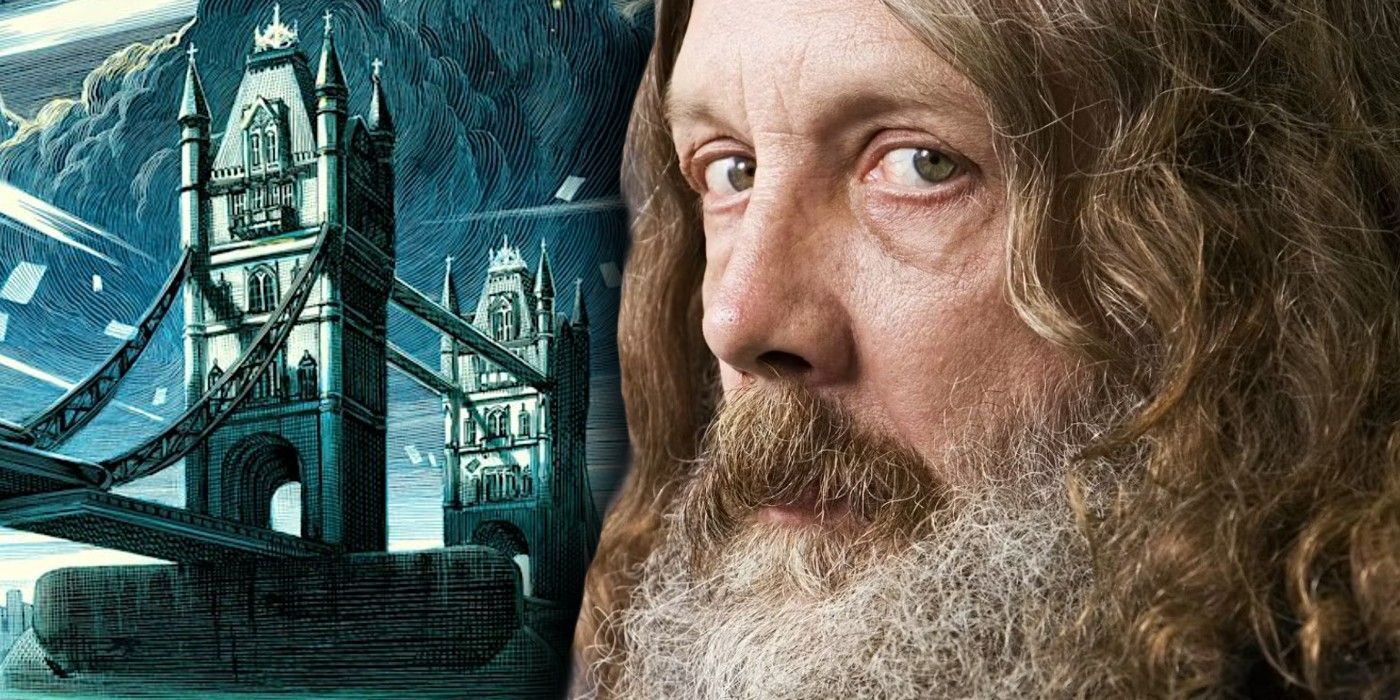 screenrant.com
screenrant.com
> Alan Moore - the genre-defining writer behind works including Watchmen, From Hell, Jerusalem, and the short story collection Illuminations - has officially announced his next project, The Great When, revealing the book's mind-bending cover. Moore has long teased his plans for the 'Long London' quintet - a series which will follow an 18-year-old protagonist whose story will stretch across several different time periods in the UK's capital city, beginning in 1949. > > Publisher Bloomsbury has now confirmed The Great When will release October 1, revealing the book's cover and blurb. The novel will follow second-hand bookseller Dennis Knuckleyard as he discovers that one of the rare books he's been asked to acquire doesn't exist, plunging him into the hidden magical underworld of London, known as the Great When. Now, fans get to see the full wraparound cover, exclusively shared by Entertainment Weekly, with Moore calling it "a small illustrative masterpiece that perfectly reflects the book's hallucinatory mood and storyline, along with that of the post-war decade the work is set in."
 www.bbc.com
www.bbc.com
> This year marks 200 years since the birth of George MacDonald, whose fantasy writing and ideas on faith inspired literary greats including JRR Tolkien and CS Lewis. > > MacDonald, who was born in Huntly and grew up on a farm, wrote more than 50 books. > > They included children's fairy tales which were read by Tolkien - author of The Hobbit and The Lord of the Rings - when he was a boy. > > Some of MacDonald's work remains in print today, but Amy Miller of Aberdeenshire Museums Service said the Scot had been largely forgotten.
Hello. I'm UKFilmNerd, you can usually find me at !homevideo@feddit.uk. While I usually review films on my little blog space, I occasionally branch out and try reviewing other forms of media. Here's a review of the book Aliens: Phalanx by Scott Sigler. It's an Aliens adventure, based on the popular film franchise, but in this story, the people under attack are a primitive type with no guns just spears.
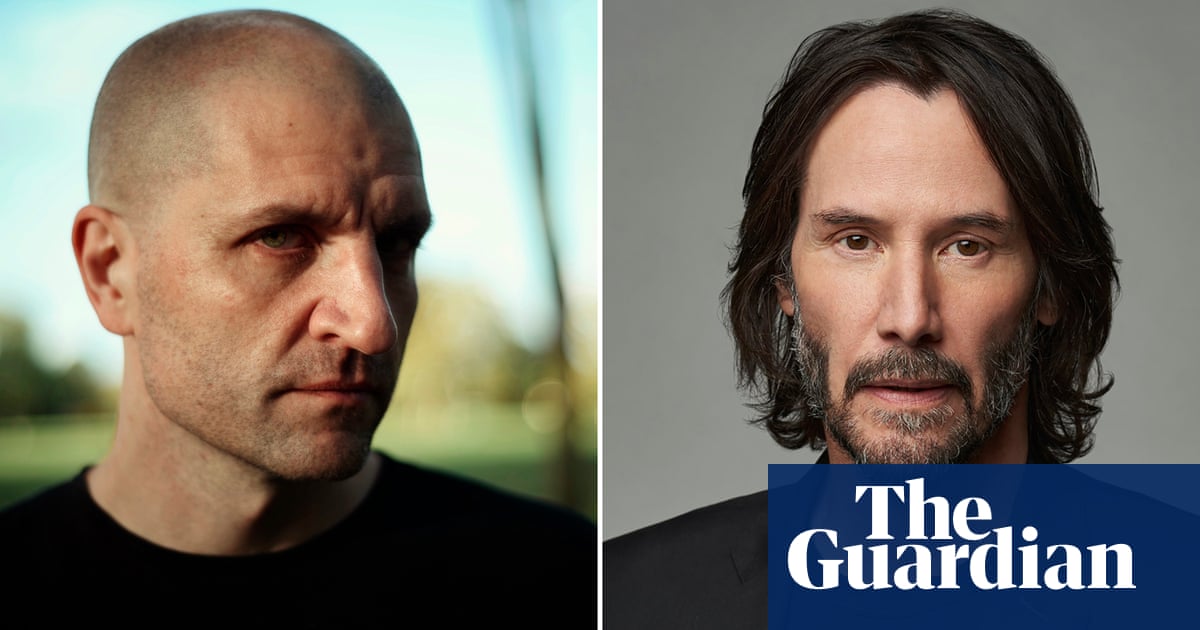 www.theguardian.com
www.theguardian.com
> Canadian actor Keanu Reeves will publish his first novel this year in collaboration with British author China Miéville. > > Their joint novel is titled The Book of Elsewhere and is set in the world of the BRZRKR comic book series created by Reeves, first published in 2021. It follows an immortal warrior on a millennia-long journey to understand his immortality. > > The novel is due to be published on 23 July by Penguin. Reeves, who is best known for his roles in The Matrix and John Wick franchises, said it was “extraordinary” to work with Miéville. “China did exactly what I was hoping for – he came in with a clear architecture for the story and how he wanted to play with the world of BRZRKR, a world that I love so much. I was thrilled with his vision and feel honoured to be a part of this collaborative process.” > > Miéville’s novels include The City & The City, Embassytown and Perdido Street Station. He is the only writer to have won the Arthur C Clarke award for science fiction three times.
The UK’s beleaguered public libraries have been let down by years of indecision and delays over how to spend millions of pounds in funding earmarked for a nationwide website. This was among damning criticisms voiced on Saturday by campaigners who have lost patience with the government, the British Library and Arts Council England (ACE) over their longstanding failure to develop a nationwide scheme. The “Single Digital Presence” (SDP) – renamed LibraryOn – was meant to bring together public libraries in one website to enable the public to access collections across the country.
 www.bbc.co.uk
www.bbc.co.uk
> Philosopher John Gray chooses as his great life the iconic British writer of dystopian and speculative fiction, J.G. Ballard, in conversation with the author's daughter Bea Ballard.
 www.eurogamer.net
www.eurogamer.net
> For a while, it looked like his name and reputation were going to be hijacked by absurdly wealthy, self-regarding tech doofuses. In his pre-X days, Musk claimed to be taking inspiration from Banks's sci-fi visions, declaring himself a "utopian anarchist" while gesturing vaguely toward the Culture universe. Amazon big cheese Jeff Bezos also publicly declared himself to be a Banks fan in 2018 when Prime Video unveiled plans to turn sprawling galactic doorstop Consider Phlebas - the first Culture novel, published in 1987 - into a live-action streaming series. That adaptation was quietly cancelled in 2020 . (My hot tip? Secure the rights to 1990's Use of Weapons, the most badass/emotionally shattering Culture book, and do it as kinetic, stylised anime: a real Machiavellian turbo-screamer!) > > A little more than ten years after his death, we are experiencing a timely, double-pronged Banks bump. His 13 sci-fi books as Iain M Banks are being reissued this month with eye-catching new cover art - I'm getting cool synthwave vibes, but also maybe a bit of Tarot? - that will hopefully get them into the hands and brainpans of a new generation of readers. Even more exciting: the recent publication of behind-the-curtain coffee table tome The Culture: The Drawings, collating his earliest conceptual designs for what would become his signature sci-fi creation. Banks was apparently a habitual scribbler and doodler, conjuring crude but detailed geographical maps, architectural drafts, spaceship designs, weapons prototypes and the sketched-out foundations for an entire glyph-based language. (That last requires you to rotate the landscape-orientated art book 90 degrees to puzzle over Banks's exploratory stabs at nonary encoding.) > > The result is a chaotic intergalactic blueprint - the Culture in skunkworks form - self-annotated in cramped chickenscratch. Banks was a dude who loved his whisky and his amateur draftsmanship has some of the character of cask spirit: raw and unrefined but heady and intoxicating. It occasionally reads like graffiti scrawled in the margins of a runaway imagination: Banksy Woz Ere. An extended chapter cataloguing increasingly ginormous Culture spacecraft sees old-school Elite-style wireframe models paired with astonishingly detailed tables of their dimensions, crew complements and capabilities. It seems obsessive and perhaps a little redundant, the sort of crammed, maniac dream journal an art department intern might be required to produce while working on a grim serial killer movie. But then you catch another dashed-off Note To Self: "Nothing is so obvious that you might not have to explain it to somebody sometime." The details matter.
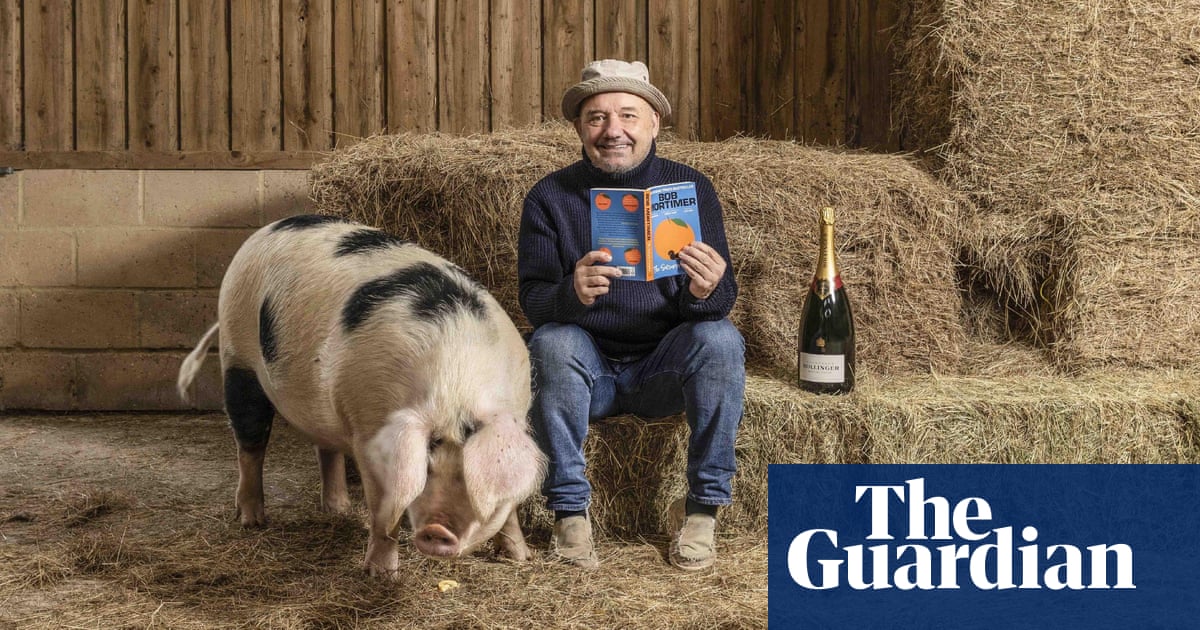 www.theguardian.com
www.theguardian.com
> A pig will be named after Bob Mortimer’s debut novel, The Satsuma Complex, as the comedian’s book has been announced as the winner this year’s Bollinger Everyman Wodehouse prize for comic fiction. > > Mortimer, who found fame as one half of Reeves and Mortimer alongside Vic Reeves, said he was “really chuffed” to have won the award. “I still have no idea if I can actually write but this award gives me fresh hope,” he added. > > ... > > The award seeks to recognise the funniest new novels that best evoke the spirit of PG Wodehouse’s witty characters and comic timing. Along with the pig (which will continue to live at Oaklands Farm in east Sussex), Mortimer will also win a jeroboam of Bollinger Special Cuvée, a case of Bollinger La Grande Année and the complete set of the Everyman’s Library PG Wodehouse collection.
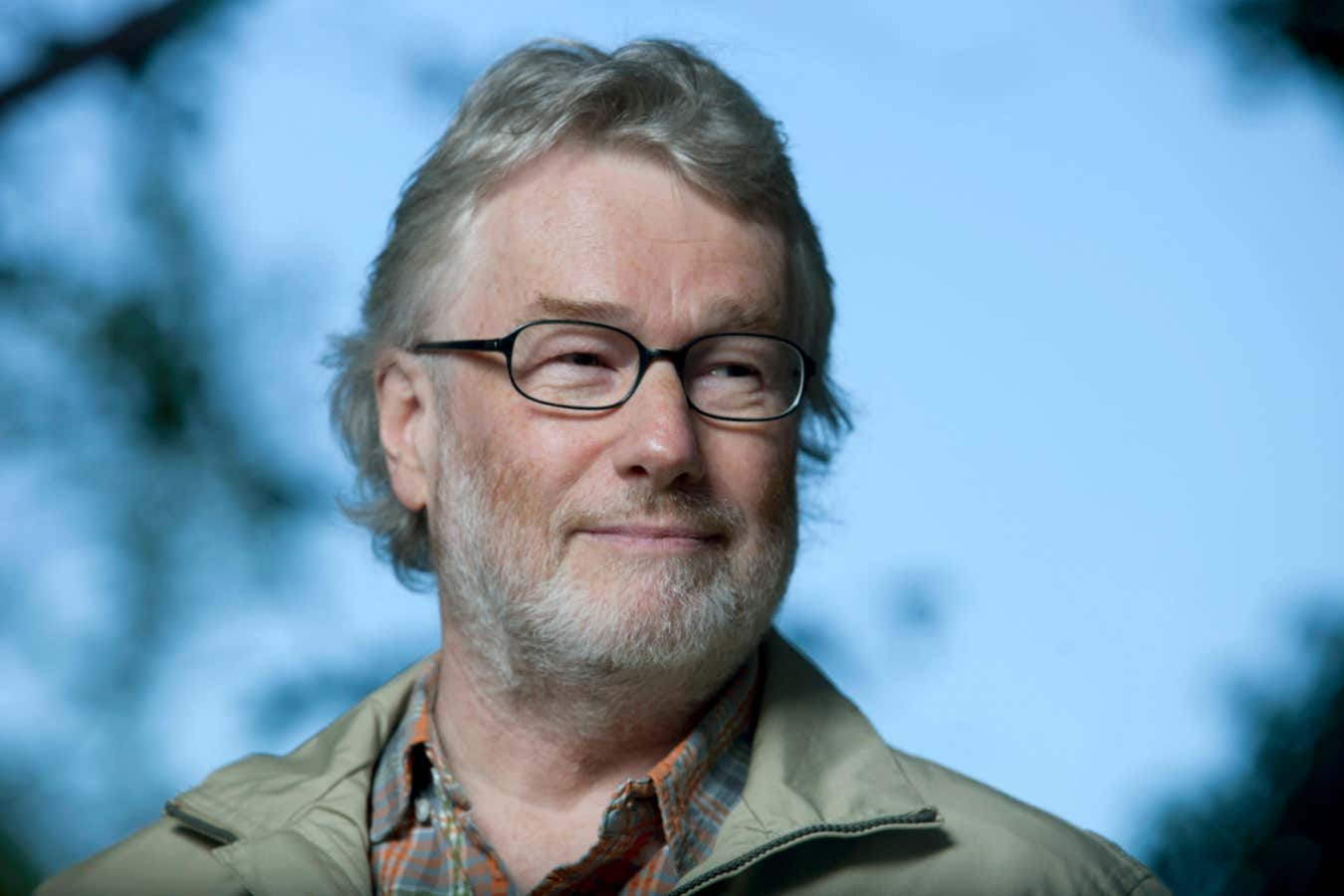 www.newscientist.com
www.newscientist.com
> "The Culture: The Drawings* by Iain M. Banks. I was blown away when I first read Banks’s The Wasp Factory and met his unreliable young narrator, Frank. When I discovered, in The Player of Games, that adding an M to his name brought you a universe run by benevolent AI minds (with brilliant names: I’m thinking of you, Mistake Not…), he shot to the top of my list of favourite writers. Banks died in 2013 – this is a collection of his drawings from when he was creating the Culture universe, reproduced from his 1970s and 1980s sketchbooks, which shows the “ships, habitats, geography, weapons and language” he dreamed up to tell his stories with. I mean, I’d rather have a new Culture novel – but this will do nicely instead. [Archive link](https://archive.ph/eBUtL)
 www.firstthings.com
www.firstthings.com
cross-posted from: https://derp.foo/post/374706 > In many ways, the First Folio made Shakespeare Shakespeare. The narrative poems Venus and Adonis and The Rape of Lucrece had appeared in 1593 and 1594 to wide acclaim, and in 1609 the Sonnets further established Shakespeare’s reputation as a poet. But Milton’s epitaph speaks of a “Dramatick Poet”—a playwright. By and large, the plays had not been published during Shakespeare’s life. Had they been published, anyone could have staged them. Performances brought money, so it behooved the Lord Chamberlain’s Men to keep the plays to themselves. > > Complete copies of plays were hard to come by, even for the actors who performed them. Paper was expensive, and pirating was rife, so actors received something more modest than a script. On a long, narrow cylindrical sheet—a roll, from the French rôle—each player received his lines only, framed by very few cue-words. Thus, the actor playing Hamlet would know little of Gertrude’s or Claudius’s lines or motives prior to rehearsal. > > Even so, by the time Shakespeare died in 1616, some of his plays had been published in editions known as quartos—four pages folded to produce eight leaves, sixteen pages in all. Some of these plays seem authentic, printed perhaps to make money during times of plague when the theaters were closed. There are also “bad quartos,” pirated or constructed from actors’ memories of their individual rolls. Other quartos were falsely attributed to Shakespeare in order to monetize his reputation. It was an important event, then, when the authorized First Folio appeared seven years after Shakespeare’s death. This year marks the four-hundredth anniversary of its publication.
 www.theguardian.com
www.theguardian.com
cross-posted from: https://feddit.uk/post/4174620 > > Wading into other people’s fights has proved a theme for the co-writer of Father Ted and writer-director of The IT Crowd. A vociferous critic of the transgender rights movement, Linehan’s views have, in recent years, cost him friends, his livelihood and, he claims, his marriage. But, despite having been given a verbal warning by police after a complaint from a trans campaigner, he remains uncowed. Tough Crowd is, then, his memoir-cum-defence statement in which he recounts his years making TV sitcoms before he was “perceived as toxic” and lays bare his grief at all he has lost. > > > > ... > > > > But all charm evaporates in Linehan’s exhaustive recounting of the past five years as an “activist”, during which memoir is largely replaced by polemic. He is oddly sage-like on the early dangers of social media, though this doesn’t prevent him from being hypnotised by the heated online exchanges between trans campaigners and gender critical feminists. In 2018, while lying on a hospital trolley, of all places, fresh from surgery for testicular cancer, he picks up his phone and posts a series of tweets “[nailing] my colours to the gender-critical mast”. > > > > The more he is abused for his opinions, the more entrenched and maniacal those opinions seem to become. Here, as on his Twitter page, he makes a show of misgendering trans men and women, and says he is stunned at his “inability to make people care about the daylight theft of women’s rights, or the greatest safeguarding scandal since Rotherham, or the greatest medical scandal since thalidomide”. > > > > ... > > > > Tough Crowd reads less like the story of a man heroically cleaving to his principles than a document of a peculiar and self-defeating obsession, a sad coda to a once towering talent.
 www.theguardian.com
www.theguardian.com
> Since it’s impossible to read Partridge without hearing his voice in your head, this is a book best enjoyed in audio where, courtesy of Coogan, his pompous pronouncements and warped self-analysis take flight. As ever, the writing is atrocious in the best possible way. In Big Beacon, Partridge is in his element, which is to say swimming against the tide and convinced of his reasonableness in an increasingly bewildering world.
Two books I have read by author Chris Baker as they popped up cheap as ebooks via Amazon. **WRONG! Retro Games, You Messed Up Our Comic Book Heroes!** - This was a fun read, as the title suggests, looking at vintage games of the past on consoles and home computers and how superheroes were routinely misrepresented on our small screens. Anything from using blatantly wrong colours or even stripping a superhero of one of his most iconic abilities. **X-Wings, Lightsabers, and Scorpion Vader: Celebrating 40 Years of Star Wars Video Games (From a Certain Point of View)** - This reads more like a series of web articles. To be fair, Chris admits this but they have been fully updated. This book covers all electronic Star Wars games right up the the present day with Star Wars Jedi: Survivor. There's the bizarre Japan-only release of Star Wars for the NES and a list of all the games that feature the Battle of Hoth and how they changed due to the evolution of technology. An entertaining read for any Star Wars gaming fan. Happy reading.
I remember reading an article a few months ago about how the vast majority of books published don't make their production costs back. And this got me thinking. How many 'new' books do you read each year? I'm not the most avid reader in the world (although, I've read 14 this year so, you know), but I've noticed that I rarely end up buying a book that's brand new. Some of this is marketing (I just don't see potential new books), some of it is price (money is tight, new books can be expensive) and some of it is time (I work and have 2 young kids, I don't have that much time to read any books, let alone the new bestsellers). So my question: How do you consume your books. Are you a day 1 pre-order sort of reader, or do you keep a long list of books you'll get to (maybe)?
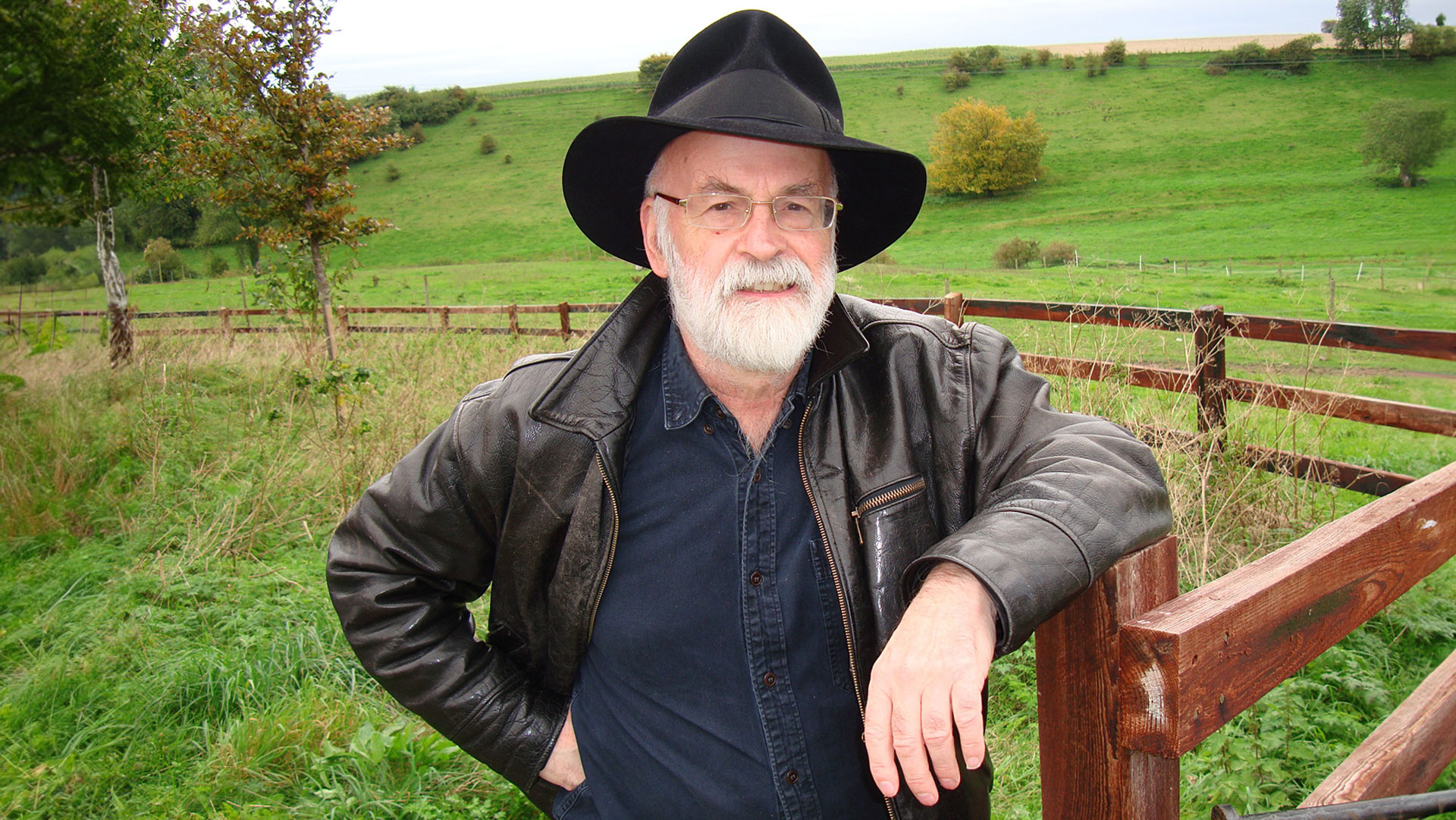 www.bigissue.com
www.bigissue.com
cross-posted from: https://feddit.uk/post/3210298 > > When Terry Pratchett died in 2015, we thought we’d never again get another story from the Discworld creator. But there were secrets to be unearthed.
 www.theparisreview.org
www.theparisreview.org
cross-posted from: https://derp.foo/post/264843 > There is a [discussion on Hacker News](https://news.ycombinator.com/item?id=37649250), but feel free to comment here as well. > Putting Ballard on a master’s course list, as I’ve done a couple of times, provokes a reaction that’s both funny and illuminating. Asked to read Crash or The Atrocity Exhibition, the more vociferous students invariably express their revulsion, while the more reflective ones voice their frustration that, although the ideas might be compelling, the prose “isn’t good.” This is especially the case with students who’ve been exposed to creative writing classes: they complain that the books are so full of repetition they become machinic or monotonous; also that they lack solid, integrated characters with whom they can identify, instead endlessly breaking open any given plot or mise-en-scène to other external or even unconnected scenes, contexts, and histories, resulting in a kind of schizoid narrative space that’s full of everyone and no one. > > This second group, of course, is absolutely right in its analysis; what’s funny (and, if I can teach them anything, reversible) about their judgment is that it is these very elements (repetition, machinism, schizoid hypermnesia) that make Ballard’s work so brilliant. > > ... > > Adapted from the foreword to *J. G. Ballard’s Selected Nonfiction, 1962–2007*, edited by Mark Blacklock, to be published by MIT Press in October.
> The title is a quote from Shaun of the Dead — meaning something that can’t be bettered, that is as good as it gets — and it is not a celebrity memoir. It is a cookbook. But Delia it is not. > > “I thought, ‘What if Hunter S Thompson wrote a cookbook?’ and went from there,” Frost says, which isn’t a bad way to describe it, but doesn’t fully capture how sweet and funny and weird it is, as well as genuinely insightful about cooking. > > Frost has been cooking for friends since he and Pegg were flatmates. When I tell him that I’ve heard from multiple sources what a brilliant cook he is, he dismisses the compliment and says cooking is just another symptom of his people-pleasing tendencies and his ADHD (the slicing and dicing soothes him) and, really, it’s just a way for him to hide in the kitchen when people come over. “I feel that maybe cooking is an apology sometimes: ‘Sorry I’m like this,’ ” he writes in the book. > > Maybe it is all of that, but I also feel he is possibly pathologising one of the few healthy hobbies he has had for the past 20 years. The recipes are all hearty but healthy and made for sharing: fish pie, Sunday roast, curries — the opposite of furtively bingeing on chocolate bars in a loo. It is also, clearly, a way to give his children the kind of nourishment that perhaps he and his siblings didn’t always have. The food is almost by the bye because this is a cookbook that is really about the writing, and the writing is very funny. Yes, he references what he has been through recently, and yes, he writes about his neuroses. But there are also pages of what he calls his “flights of fancy” that can take you from a ragu recipe straight into the romantic life story of a fictional Italian nonna before, without so much as a pause, hurling you into how to make gnocchi. > > “I just feel that the book can be weird. I’m allowed to be weird,” he says. In a section on whether it’s worth making your own pastry or not, Frost writes: “If I like my guests enough, maybe I’ll go that extra mile, but usually I want them in and out so me and my lunacy can settle in for the night editing photos of dead mice I find and sitting them in a selection of tiny chairs I own. (When you put a beautiful dead mouse in a tiny reproduction of the classic Karuselli chair, they end up looking like 1960s Bond villains.) Turn your oven up to 180C ” > > Frost has always been good at finding the humour in his anxiety and anger, so much so that some friends didn’t realise how bad they were. In his recipe for children’s porridge he segues to an anecdote about when he and Joe Cornish — who directed Frost in the sci-fi comedy Attack the Block — went to Japan on a press trip for the film. When he found out his bedroom was on the 50th floor of the hotel he thought his “heart would burst” and immediately checked out, petrified. > > Cornish, when I speak to him, says what he remembers about working with Frost is “how he’s so confident and funny, but also so bullish and vulnerable”. “He was the big star on Attack the Block because all the kids in it were first-timers. Nick had that experience when he was on Spaced, because he’s not a trained actor and was inveigled into Spaced by Simon. So he was really sweet with the kids, teaching them tricks to memorise their lines.”
 www.huffingtonpost.co.uk
www.huffingtonpost.co.uk
> A spokesman for Jeremy Corbyn’s ‘Peace and Justice Project’ said: “In light of the recent allegations concerning Russell Brand, we have removed his contribution from our upcoming Poetry For The Many project.” > > Other contributors include the actor Maxine Peake, children’s author Michael Rosen, director Ken Loach and former Labour Party official Karie Murphy. > > ... > > Speaking when the publication of the book was announced, Corbyn said: “This book grew out of regular conversations Len and I hold about poetry: the enjoyment we get from it and the opportunity it provides for escape and inspiration. > > “When putting it together, the hardest part was deciding what to leave out.” > > “There is a poet in all of us and nobody should ever be afraid of sharing their poetry,” he added. > > McCluskey, the former general secretary of the Unite union, said: “It should be mandatory on the national school curriculum to make poetry accessible to every child and student, so that the stigma in working-class communities about it being only for ‘posh people’ or ‘softies’ can gradually be eliminated.”
I'll kick us off with a few of my favourites. **Things Can Only Get Worse? - John O' Farrell** The story of twenty confusing years as a member of the Labour party. From the pre-Blair years through to the Corbyn. An absolutely fascinating read for someone like me who's both a member of the party and someone who's interested in leftist politics and British political history. **The Social Distance Between Us - Darren Mcgarvey** Great read if you're looking to get angry about the state of the UK. Doesn't pull any punches and isn't afraid to get it's hands dirty. **Impeachment - Jon Meacham** I'm really into US Presidential history. This book covers the Johnson, Nixon and Clinton impeachments, and explains why they were bought, the narrative around the cases and why they reached the conclusion they did. This is genuinely one of my favourite books going.
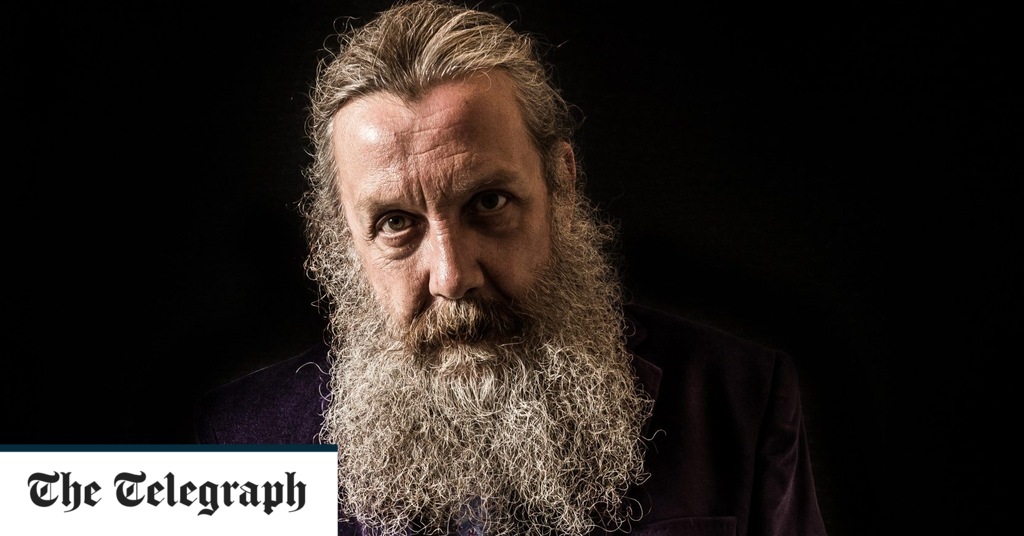 www.telegraph.co.uk
www.telegraph.co.uk
> After four decades in the comic book industry, Alan Moore is relishing being in the world of literary publishing. “I’m having a very good time of it,” says Moore, whose debut collection of short stories, Illuminations, is just out in paperback. > > He says that his publisher, Bloomsbury, “respect my decisions and opinions. And I own my own work. It doesn’t sound like a lot if you’re used to traditional grown-up publishing, but it means an awful lot if you’re used to the comic books industry. It does make me wish that I’d maybe gone into writing prose fiction back in the late Seventies.” > > ... > > Talking to me over Zoom, the 69-year-old Moore – a hirsute figure whose aesthetic might best be described as WFH Gandalf – insists that he has formally retired from writing comics now, despite the challenges that prose fiction brings. > > The stories in Illuminations are in equal parts weird, funny and exhilarating, but what stands out – whether he’s describing an apocalyptic battle between angels and demons in the skies above Bedford, or the lovemaking of two disembodied brains in the moments after the creation of the universe – is his visual impact of his prose. > > “I’ve always had, I think, a fairly decent visual imagination, and when I was working in comics the visual descriptions would be going into the lengthy notes that I was writing just for the artist.” > > The centrepiece of Illuminations is a long story on the theme of the decline of the comic book industry. His objection is to “the gentrification of comics that happened post-Watchmen: that neighbourhood has been lifted out of the reach of its original inhabitants” – i.e. children. > > ... > > The strength of Moore’s opinions is belied by their matter-of-fact delivery in a gentle Northampton accent. The son of a brewery worker, he was brought up in The Boroughs, “the most impoverished area of Northampton”. > > Moore says that his “values system was formed in The Boroughs”: “although it was destitute there was an astonishing sense of community – nobody would rob anyone else because nobody else had anything. There was a kind of commonality.” In the 1970s he worked in underground comics and music papers, and those egalitarian values were nourished by the counterculture. > > ... > > He’s now working on a series of fantasy novels set in mid-20th-century Britain. “Fantasy these days seems to have been boiled down to a kind of JRR Tolkein, George RR Martin world of warriors and dragons and, for some reason, dwarves. The fantasy books that inspire me are things like Mervyn Peake’s Gormenghast trilogy, which is actually about the real world in some ways, the changing nature of British society. > > “Fantasy has no restrictions whatsoever, so it’s a bit lame to be constantly hitting the same note on the piano. Let’s have fantastic visions that nobody has ever seen before – and lay off people of restricted height for a change.”
cross-posted from: https://lemm.ee/post/7566814 > *JRR Tolkien interview: ‘I never expected a money success’* > > # JRR Tolkien interview: ‘It would be easier to film The Odyssey than The Lord of the Rings’ > > *** > *After the publication of his Middle Earth epic, the writer spoke to the Telegraph. 50 years after his death, here is the archive interview* > > *This interview was originally published in The Telegraph magazine on March 22, 1968* > > “Spiders,” observed Professor JRR Tolkien, cradling the word with the same affection that he cradled the pipe in his hand, “are the particular terror of northern imaginations.” The Professor, now 76, is the author of The Hobbit and of the three-volume epic fairy-tale, The Lord of the Rings, the slowest-developing bestseller in modern publishing history. He was on the subject of dragons and the other horrenda which are his scholarly stock-in-trade. > > Discussing one of his own monsters, a man-devouring, spider-like female, he said, “The female monster is certainly no deadlier than the male, but she is different. She is a sucking, strangling, trapping creature.” > > To Professor Tolkien, a retired Oxford philologist and a man used to dealing evidentially with his material, everything, even in fantasy, must be specific. In his world of wondrous things, he moves with the surety of a white hunter on a game reservation. His dwarfs have detailed family trees. His elves have their own carefully-constructed languages. His wizards work according to union rules. And his hobbits, the most famous of all his characters are a distinctly unfanciful race – food-loving, gift-giving, house-proud, paunchy – and as believable as your local newsagent. > > When John Ronald Reuel Tolkien leads you into the cramped garage that serves as library, he leads you at once into the magic and legend of Middle-earth, the three-dimensional cosmogony of The Lord of the Rings. Not that the garage itself is any cave of wonders. Jammed between the Professor’s own house and the one next door, in an undistinguished Oxford suburb, it would be no more than a banal little room, filled with files and a clutter of garden chairs, if it were not for the man. > > Tolkien, who describes himself as “tubby”, has grey eyes, firm tanned skin, silvery hair and quick decisive speech. He might have been, 50 years ago, the model of the kindly country squire. Any hobbit would trust this man, any dragon would quail before him, any elf name him friend. Effortlessly, he compels you to admire him as much as – and herein lies his charm – he clearly admires himself. > > To the small but bitter anti-Ring coterie – some of whom profess to see sinister meanings in the text – his very ebullience would presumably constitute an irritant. But to devotees, all this adds up to the perfect cult-hero. > > Tolkien cultists, though predominantly academic and egghead, are not wholly so. Housewives write to him from Winnipeg, rocket-men from Woomera, pop-singers from Las Vegas. Ad men discuss him in London pubs. Germans, Spaniards, Portuguese, Poles, Japanese, Israelis, Swedes, Dutch and Danes read him in their own languages. > > He is also a literary opiate for hippies, who carry his works to their farthest-flung pads, from San Francisco to Istanbul and Nepal. > > Despite the fact that his books lack perversion, four-letter words, homosexuality and sadism – virtually everything that makes 20th-century fiction so commercially desirable – the Professor and those connected with his publications have found the streets of Middle-earth paved with gold. > > “I never expected a money success,” said Tolkien, pacing the room, as he does constantly when he speaks. “In fact, I never even thought of commercial publication when I wrote The Hobbit back in the Thirties. > > “It all began when I was reading exam papers to earn a bit of extra money. That was agony. One of the tragedies of the underpaid professor is that he has to do menial jobs. He is expected to maintain a certain position and to send his children to good schools. Well, one day I came to a blank page in an exam book and I scribbled on it. ‘In a hole in the ground there lived a hobbit. > > “I knew no more about the creatures than that, and it was years before his story grew. I don’t know where the word came from. You can’t catch your mind out. It might have been associated with Sinclair Lewis’s Babbitt. Certainly not rabbit, as some people think. Babbitt has the same bourgeois smugness that hobbits do. His world is the same limited place.” > > 'In a hole in the ground, there lived a hobbit': the inspiration for Middle Earth came while Tolkien was marking exam papers > 'In a hole in the ground, there lived a hobbit': the inspiration for Middle Earth came while Tolkien was marking exam papers Credit: Pamela Chandler > > When Professor Tolkien spoke of the hobbits’ limited world, he was referring only to their native heath, the Shire, where they built their snug homes in the ground, fitted them with round doors and windows, and placidly surveyed their possessions and studied their family trees. But the rest of Middle-earth, in which Bilbo Baggins of the Shire unexpectedly finds himself adventuring, is a boundless horizon filled with marshes and mountains, terror and beauty. > > Tolkien let a few of his Oxford friends read The Hobbit. One, a tutor, lent it to a student, Susan Dagnell. When, some time later, Miss Dagnell joined Allen & Unwin, the publishers, she suggested it as a children’s book. Sir Stanley Unwin assigned his son, Rayner, then ten, to read it. (“I gave him a shilling,” Sir Stanley recalls.) > > Although The Hobbit was no runaway bestseller, readers were fascinated by Middle-earth, and Allen & Unwin asked for a sequel. Tolkien then offered The Silmarillion, a saga of the mist-shrouded beginnings of elves and men, which he had begun in 1916. But it was turned down in Museum Street as being too dark and Celtic. “They were quite right,” Tolkien recalls. He is now revising it. > > Even before The Hobbit, he had been gestating The Lord of the Rings, which historically, in Middle-earth terms, actually follows it. Now, with The Silmarillion rejected, he returned to the Ring, which relates the deeds of Bilbo’s nephew Frodo, and of a mighty wizard called Gandalf. Over the next 14 years the bulky manuscript slowly took shape. > > Sir Stanley Unwin, whose competitors called him mad when he published the first two volumes in 1954, told us, “I was in Japan when the manuscript arrived. Rayner wrote to say it seemed a big risk. It would have to be published in three volumes, at a guinea each – this at a time when 18 shillings was top for a bestseller. But Rayner added, ‘Of course, it’s a work of genius’. So I cabled him to take it. > > “Of all the books I’ve brought out in 63 years, there are few that I can say with absolute confidence will sell long after my departure. Of this one I had no doubts.” > > Tolkien’s imaginary landscapes grew out of his predilection for creating languages. “Anyone who invents a language,” he said, “finds that it requires a suitable habitation and a history in which it can develop. A real language is never invented, of course. It is a natural thing. It is wrong to call the language you grow up speaking your native language. It is not. It is your first learnt language. It is a by-product of the total make-up of the animal.” > > Tolkien’s Middle-earth, with people, histories, languages all logically integrated, corresponds spiritually to north-eastern Europe. But it extends southward to include lands where dark-skinned people ride to battle on beasts called oliphaunts, and east to evil Mordor which “would be roughly in the Balkans”. > > Tolkien’s friend and fellow author, the late C. S. Lewis, “was immensely immersed” in the development of the Ring, but not always mutely admiring. “He used to insist on my reading, passages aloud as I finished them, and then he made suggestions. He was furious when I didn’t accept them. Once he said, ‘It’s no use trying to influence you, you’re uninfluenceable!’ But that wasn’t quite true. Whenever he said ‘You can do better than that. Better Tolkien, please!’ I used to try.” > > Professor Tolkien sold his original 4,200-page typescript of the Ring to Marquette University in Milwaukee, Wisconsin: “I wanted the money very badly to buy this house.” > > He was born at Bloemfontein in South Africa. “I was three when I was brought to England,” he said. “After the dry, barren places I had known, I had in a way been ‘trained’ to savour the delicate English flowers and the grass. I had this strange sense of coming home when I arrived. The hobbit business began partly as a Sehnsucht for that happy childhood which ended when I was orphaned, at 12.” > > The scene of his déjà vu – Sarehole, on the outskirts of Birmingham – became the model for the Shire. > > He recalled, “As a child, I was always inventing languages. But that was naughty. Poor boys must concentrate on getting scholarships. When I was supposed to be studying Latin and Greek, I studied Welsh and English. When I was supposed to be concentrating on English, I took up Finnish. I have always been incapable of doing the job in hand.” > > He was a scholarship student at King Edward VI School in Birmingham, then went on to Oxford. With the Lancashire Fusiliers on the Somme, he saw tattered and burnt-out landscapes which find unearthly echoes in the Ring. The years that followed – in Leeds University and later at Oxford – were marked by academic honours. But parallel to scholarship has always run his strong preoccupation with the mystic land of Faerie. > > This, to him, is a rich and wondrous realm filled with beauty, peril, joy and sadness – to be relished for its own sake, and not dissected. > > So, naturally, he resists the earnest student who tries to read “meanings” into the Ring. “The book,” he said, “is not about anything but itself. It has no allegorical intentions, topical, moral, religious or political. It is not about modern wars or H-bombs, and my villain is not Hitler.” > > Must fairytales be confined to legendary times and places, or could they be staged in modern settings? “They cannot,” he said, “not if you mean in a modern technological idiom. The reader must approach Faerie with a willing suspension of disbelief. If a thing can be technologically controlled, it ceases to be magical.” > > Tolkien regrets that, over the centuries, fairytales have been downgraded until they are considered fit only for very young children. Most of all, he dislikes the story that moralises: “As a child I couldn’t stand Hans Andersen, and I can’t now.” > > He has written: “The age of childhood-sentiment has produced a dreadful undergrowth of stories adapted to what is conceived to be the measure of children’s minds and needs. The old stories are bowdlerised. The imitations are often merely silly or patronising or covertly sniggering with an eye on the other grown-ups present. ...” > > He said to us: “Believable fairy-stories must be intensely practical. You must have a map, no matter how rough. Otherwise you wander all over the place. In The Lord of the Rings I never made anyone go farther than he could on a given day.” > > So real to its creator is Middle-earth that he has included a 127-page appendix which is his characters’ “actual” historical, sociological and philological underpinning. For Tolkien to have created a hobbit without a calendar and a family tree would be to leave him without flesh. > > For the same reason, he must accompany his languages with notes on vowel-sounds and stresses, scripts, alphabets and derivations. ‘“I have constructed them,” Tolkien explained, “by scientific methods. They must be at least as complete and as organised as the history of the Elves.” > > It is the appendix, Tolkien thinks, which has helped trigger the enormous new enthusiasm for the Ring among students in the United States: “A lot of it is just straight teenage stuff. I didn’t mean it to be, but it’s perfect for them. I think they’re attracted by things that give verisimilitude.” > > Professor Tolkien has, in effect, provided an intellectual Meccano-set for civilisation creators. Students search for word derivations in the invented tongues. They create new and improved Middle-earth. They build hobbit houses. They try to fill in the early unrecorded portions of Middle-earth’s history. > > What he calls, rather affectionately, the ‘absurd frenzy” began in America in 1965 with an unauthorised paperback of the Ring by Ace Books. Previous hardback editions of The Hobbit and the Ring had sold unspectacularly to limited circles whose most vocal devotee was W. H. Auden. The Ace edition was cheap, and suddenly campus booksellers couldn’t cope. > > 'Go, go Gandalf': Ian McKellen in The Hobbit: An Unexpected Journey > 'Go, go Gandalf': Ian McKellen in The Hobbit: An Unexpected Journey Credit: Warner Bros > > The unauthorised, i.e. non-royalty-paying, publication became a cause célèbre. In the autumn of 1965, Ballantine Books brought out an approved paperback. Hobbitomanes promptly made it a point of honour to buy the sanctified version, even if they already owned the exorcised one. The true aristocracy own the original English edition. “It smells right,” one fan said. > > Tolkien addicts wear lapel-buttons that say “Frodo Lives” or “Go go Gandalf ’ in English or Elvish letters, belong to Tolkien societies and write love poems in Elvish. > > Tolkien receives innumerable offers for film rights, musical-comedy rights, TV rights, puppetry rights. A jigsaw-puzzle company has asked permission to produce a Ring puzzle, a soap-maker to soap-sculpt Ring characters. Tolkien worshippers are outraged by these crass approaches. “Please,” wrote a 17-year-old girl, “don’t let them make a movie out of your Ring. It would be like putting Disneyland into the Grand Canyon.” > > The song cycle, the only commercial venture so far, began when Donald Swann, half of the At the Drop of a Hat team, set to music six of the poems which punctuate the Ring. One is in Elvish. > > When we asked Tolkien how Elvish should be sung, he replied, “Like Gregorian chants.” Then, in a wavering churchly counter-tenor, he intoned the first lines of the farewell song of Galadriel, the Elf Queen: > > > Ai! laurië lantar lassi súrinen, > > > > Yéni únótime ve radar aldaron! > > > He feels strongly that the Ring should not be filmed: “You can’t cramp narrative into dramatic form. It would be easier to film The Odyssey. Much less happens in it. Only a few storms.” > > He dislikes being bracketed with epic-writers of the past. C. S. Lewis once declared that Ariosto could not rival Tolkien. To us Tolkien said, “I don’t know Ariosto and I’d loathe him if I did.” He has also been likened to Malory, Spencer, Cervantes, Dante. He rejects them all. “Cervantes?” he exploded. “He was a weedkiller to romance.” As for Dante: “He doesn’t attract me. He’s full of spite and malice. I don’t care for his petty relations with petty people in petty cities. > > “In any case, I don’t read much now, not even fairy-stories. And then I’m always looking for something I can’t find.” We asked what that was. He replied, “Something like what I wrote myself.” > > Some people have criticised the Ring as lacking religion. Tolkien denies this: “Of course God is in The Lord of the Rings. The period was pre-Christian, but it was a monotheistic world.” > > Monotheistic? Then who was the One God of Middle-earth? > > Tolkien was taken aback: “The one, of course! The book is about the world that God created – the actual world of this planet.” > > When we asked the Professor if he would sign our copy of the Ring, he said, “Would you like an inscription? What kind?” We suggested something in Elvish. Carefully he wrote a line in the beautiful flowing script he has invented: “It’s the High Elvish greeting, ‘Elen síla lúmenn’ omentielvo’. It means, ‘A star shines on the hour of our meeting.’” >
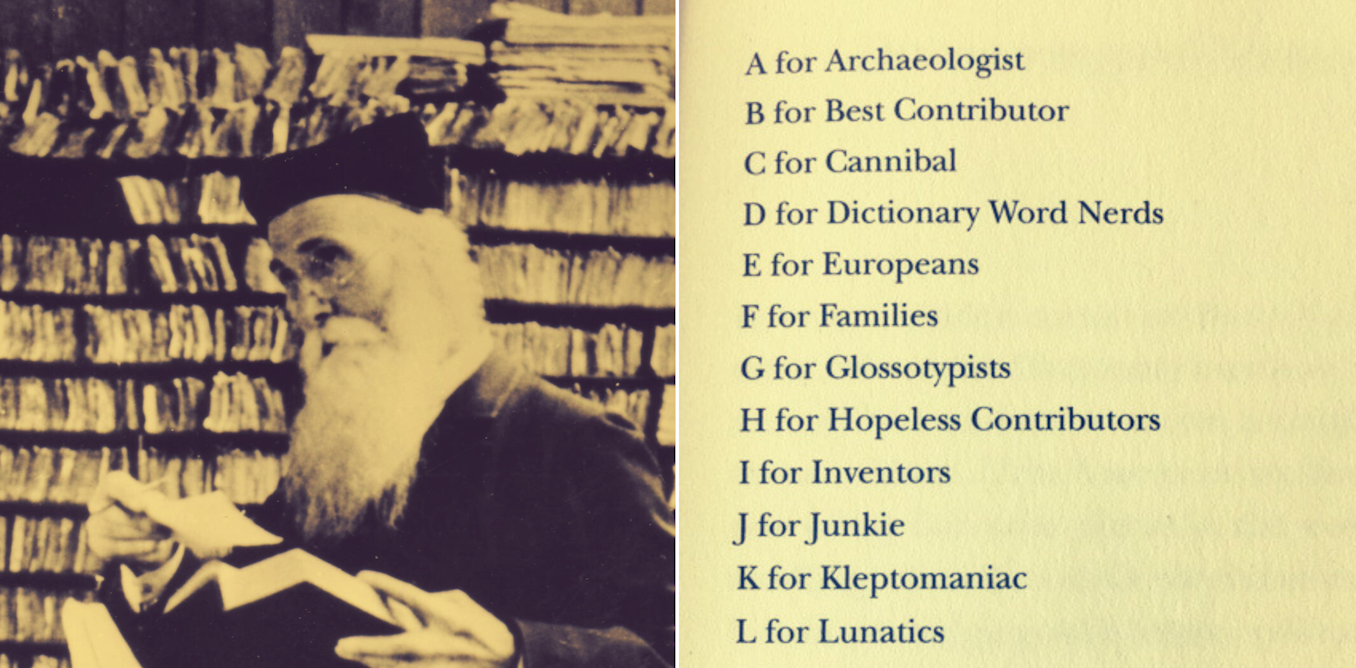 theconversation.com
theconversation.com
cross-posted from: https://lemm.ee/post/7566206 > *Stuart Kells* > > The Dictionary People: The Unsung Heroes who Created the Oxford English Dictionary is a celebration of words and word-people: authors, editors, publishers, linguists, lexicographers, philologists, obsessives, pedants. Its author, Sarah Ogilvie, was formerly an Oxford English Dictionary editor and wrote the 2013 book Words of the World: A Global History of the Oxford English Dictionary. > > Review: The Dictionary People: The Unsung Heroes who Created the Oxford English Dictionary (Chatto & Windus) > > Ogilvie’s focus in The Dictionary People is on editor James Augustus Henry Murray (1837-1915), who orchestrated a collective, pre-digital mode of crowd-sourcing to produce the first edition of the dictionary. > > Like Murray’s OED, The Dictionary People is a collective exercise. In addition to other supporters and sources, Ogilvie has assembled the book with the assistance of ten student researchers at Stanford University, with an eye for fascinating allusions and anecdotes. > > We learn from The Dictionary People that Jane Austen was the first to write the word “outsider” and that a cousin of Eleanor Marx hallucinated that she had written Louisa May Alcott’s Little Women. > > We also learn that the OED entry for ruffle – “to rumple, to destroy the smoothness or evenness of something” – took an illustrative quotation from Eleanor’s 1886 translation of Madame Bovary, and that, at the age of 27, a not-yet-famous J.R.R. Tolkien worked on the OED as an editorial assistant with the lexicographer Charles Onions, whose family referred to Tolkien as “Jirt”, short for J.R.R.T. > > Yet another delightful detail: 18 words from the science-fiction novella Flatland: A Romance of Many Dimensions (1884), including “dimensionable” and “nondimensionable”, made it in to the dictionary. Written by mathematician and theologian Edwin Abbott Abbott under the pseudonym “A. Square”, Flatland is the story of a square who visits Pointland, Lineland and Spaceland “to explore the possibility of other dimensions”. > > A book with Austen, Woolf, Tolkien and sci-fi? The Dictionary People is irresistible. > > *** > Many books have been written on the search for the Northwest Passage and John Franklin. There are numerous biographies of Leslie Stephen, J.R.R. Tolkien and the Marxes. OED contributor Edward Sugden was profiled in a book by his daughter, as well as in the Australian Dictionary of Biography and the centenary history of Melbourne University Publishing. Henry Spencer Ashbee is the subject of Ian Gibson’s book The Erotomaniac (2001). Ogilvie’s previous book covers some of the same ground as The Dictionary People (it contains the Jirt anecdote, for example) and she wrote about Chris Collier for the Australian Book Review in June 2012. > > *** > > Ogilvie’s bigger picture reveals that the English language is not owned by a club or a committee or a university or by people from a particular social class or place. It is a global language in its sources, its reach and its ownership. The language, and the literary and scholarly traditions that were built with it, belong to all of us. > > *** > > Read the entire fascinating article on the link above.
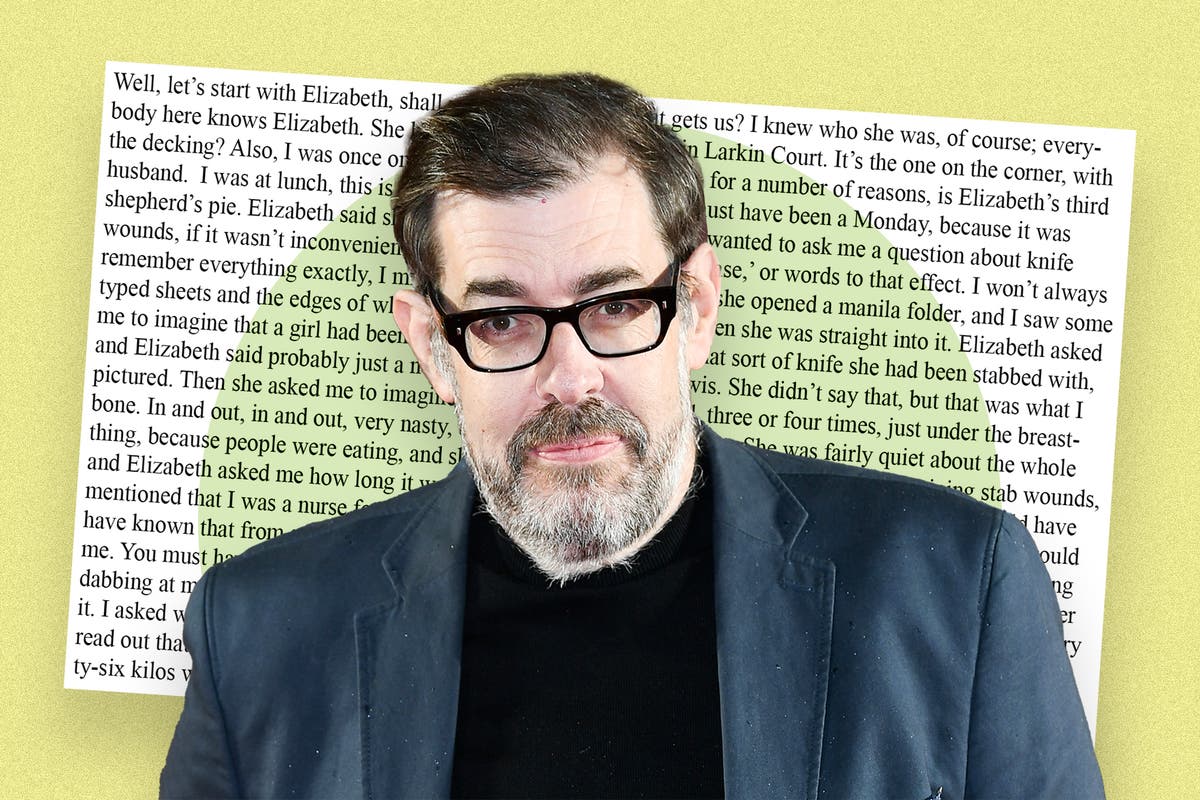 www.independent.co.uk
www.independent.co.uk
> Osman owes an obvious debt to Agatha Christie, but also to more recent light-hearted, larky mysteries by the likes of Alexander McCall Smith and Agatha Raisin author MC Beaton. The crimes “aren’t that grizzly, or they’re off stage, so you don’t see the death”, notes Dr Jennifer Young, head of writing and journalism at Falmouth University, who has researched the “cosy” crime phenomenon. And the gang tends to rely on good old-fashioned “social connections” to solve the mystery. The female characters, Young adds, tend to be “better at making those connections and having those conversations [with suspects] than the police are”. Joyce and Elizabeth are able to operate largely undetected, adds Dr Jo Parsons, a senior lecturer in English and creative writing at Falmouth, because the “invisibility of women once we hit a certain age” suddenly becomes an “incredible power”. > > The Thursday Murder Club sold 45,000 copies in its first three days and, according to Nielsen BookData, it has been the bestselling book in the UK since then, selling more than two million copies across all print editions. Its sequel The Man Who Died Twice followed in 2021, and knocked Sally Rooney’s Beautiful World, Where Are You? off the number one spot. Last year, the third instalment, The Bullet That Missed, became the fastest-selling adult fiction hardback by a British author, beating a record previously held by JK Rowling’s The Casual Vacancy. > > Glance through reviews and you’ll see words like “heartwarming” and “amiable” crop up over and over again, although The Times’ critic Joan Smith was a rare dissenter, describing The Thursday Murder Club as “a novel so flawed that it is hard to believe it would ever have been published without a celebrity’s name on the cover”. The general consensus seems to be that Osman’s books are “amiable if undemanding cosy caper[s]”, as The Guardian’s review put it – and that’s unlikely to bother Osman. “If I’m anything, I’m an entertainer,” he told The Washington Post in a 2022 interview. “I’m here to give people a book that they can’t put down, and if they’re on a plane journey then the plane journey goes quicker.” > > British readers, it seems, can’t get enough of the formula. Nielsen reports that Osman has so far sold more than five million books, a number that will only rise further when his fourth novel The Last Devil to Die is released on 14 September. On the book charts, his only real rival is Colleen Hoover, BookTok’s reigning queen of high melodrama (last year, Hoover’s It Starts With Us grabbed the top spot on the annual UK bestseller list, but guess who happily occupied positions two, three and four?). > > ... > > The consensus seems to be that Osman’s success is boosting the crime fiction market, rather than cannibalising it. Of course, his TV work gave him a ready-made platform, but Morgan notes that he has “worked really hard with Penguin [his publishers] to attend all the crime festivals and really immerse himself in the writing community … And he’s been supportive of other writers: he’s given quotes for some of the books that I’ve published from debut authors.” > > For Morgan, the “escapist” quality of Osman’s books – and of the entire cosy crime genre – goes a long way in accounting for their popularity. “[They] hold your attention in a way that normal crime [novels] would, without the menace or unease that you get from reading a normal one,” she says, “with the opportunity to play detective yourself in a charming, innocent way. There are twists, but they’re very gentle and mild-mannered.” > > But for Osman’s fellow cosy crime novelist Hall, the appeal is more specific. “He just presents such a positive picture of growing old,” he says. Normally, he adds, “you read about a retirement home and there’s lots of people with gaping open mouths, wailing from time to time”, but in The Thursday Murder Club, “you’ve got older protagonists who are firing on all cylinders.” Mortality, Hall says, “is there” in the books (not least in one ongoing sub-plot dealing with dementia) “but it doesn’t define these people”. Osman’s portrait of ageing is an affirming one, that just happens to have arrived in the wake of the pandemic, when we were bombarded with alarming headlines about vulnerable older people trapped in infection-ridden care homes. [Archive](https://archive.ph/TZua7) of [original link](https://www.independent.co.uk/arts-entertainment/books/features/richard-osman-books-thursday-murder-club-cosy-crime-b2406546.html).
This might sound a bit cliche, but The Lord of the Rings was that book for me. I read it when I was 20. I'd just started my first real job, I'd started to spread my wings a little and I'd finally gotten around to reading this absolute titan of a book. Having been a massive fan of the movies I'm surprised it took me as long as it did to read the books, but I'm so glad I waited. It was the first time In my life I'd ever felt truly lost in a world. I've not had an opportunity to revisit the books since I originally read them, but one day....
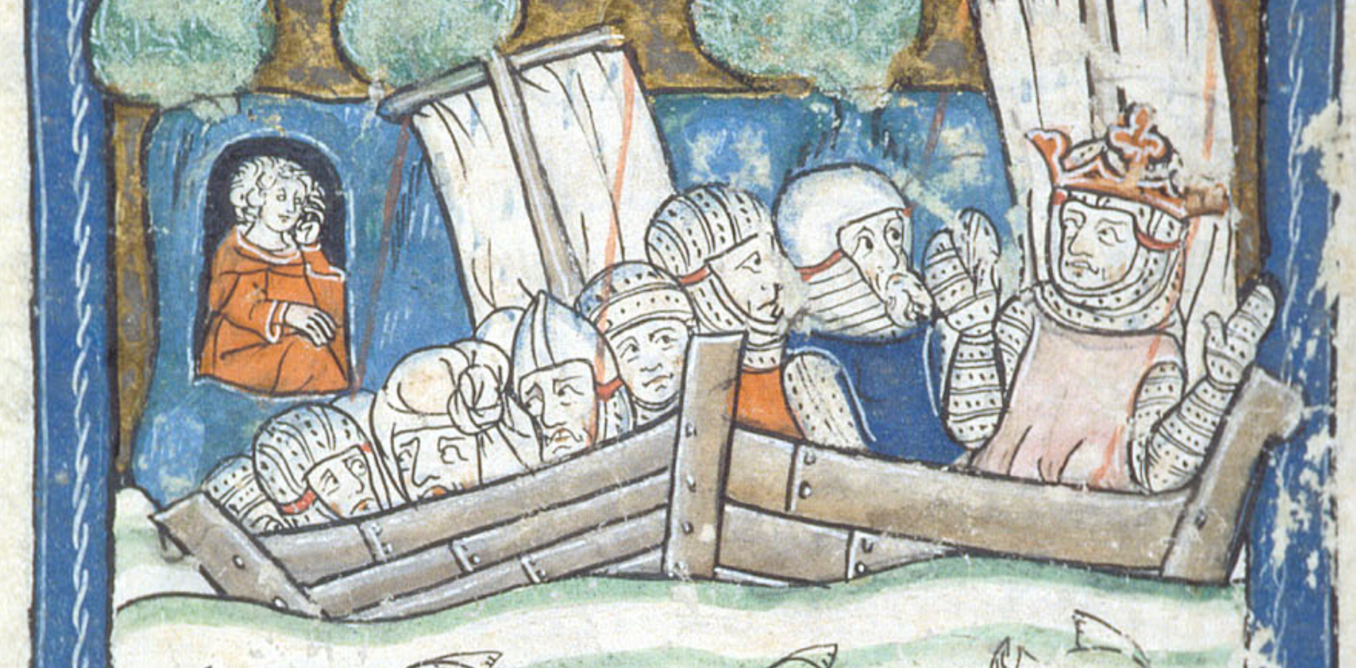 theconversation.com
theconversation.com
cross-posted from: https://lemm.ee/post/6301707 > In a moment of distraction from the laborious work of marking an “enormous pile of examination papers”, J.R.R. Tolkien flipped to a blank page on a student essay and scribbled, “in a hole in the ground there lived a hobbit”. > > This became the first line of The Hobbit (1937). From this doodle Tolkien went on to write one of the world’s most popular fantasy adventure series, The Lord of the Rings (1954). > > His main work, however, was not as the writer of fantasies that made him so famous. For the 50th anniversary of Tolkien’s death, I want to celebrate Tolkien’s life as a medievalist and philologist (historian of languages), as well as some of his major contributions to the study of medieval literature. > > Tolkein’s first teaching post was at the University of Leeds, where he worked on a translation of the 14th-century Middle English poem, Sir Gawain and the Green Knight. For many, his is still one of the best translations. > > In a moment of distraction from the laborious work of marking an “enormous pile of examination papers”, J.R.R. Tolkien flipped to a blank page on a student essay and scribbled, “in a hole in the ground there lived a hobbit”. > > This became the first line of The Hobbit (1937). From this doodle Tolkien went on to write one of the world’s most popular fantasy adventure series, The Lord of the Rings (1954). > > His main work, however, was not as the writer of fantasies that made him so famous. For the 50th anniversary of Tolkien’s death, I want to celebrate Tolkien’s life as a medievalist and philologist (historian of languages), as well as some of his major contributions to the study of medieval literature. > > Tolkein’s first teaching post was at the University of Leeds, where he worked on a translation of the 14th-century Middle English poem, Sir Gawain and the Green Knight. For many, his is still one of the best translations. > > In 1925, Tolkien won a professorship at the University of Oxford. A year later he translated the Old English poem, Beowulf. He remained a professor of English language and literature for the next 20 years. > > Tolkien’s world was in a state of flux. The rudderless turmoil of the two world wars undoubtedly had affected his writing and this is possibly why his preference for settings was always for pre-industrial England. This can be seen in his love of fairy tales and in his drawings, which are almost all natural landscapes, with little architecture. > > His love of trees was so great that he wrote a letter to his publisher saying: “I am (obviously) much in love with plants and above all trees, and always have been and I find human mistreatment of them as hard to bear as some find ill-treatment of animals.” In another, he talks of his fondness for myth, fairy tales “and above all for heroic legend”. > > # A mythology for England > > Tolkien’s biographer, Humphrey Carpenter, argues that he was attempting to create “a mythology for England” through his fantasy fiction, by creating an imaginary world with its own languages, history, cultures and people. > > Tolkien did this by drawing not only on his knowledge of languages and literature in Old and Middle English, but also on those languages that influenced the cultural and historical development of Britain, such as Finnish, Welsh, Old Norse, Old High and Middle German. > > He loved languages – both ancient and modern – and was well versed in more than a few, including Finnish, Welsh, Latin, Greek, Hebrew, Danish, Old Norse, Old English and Old Icelandic, as well as his invented Elvish languages Quenya and Sindarin, which have full etymologies. > > Tolkien wrote in a letter in 1951 about his desire to “make a body of more or less connected legend, ranging from the large and cosmogonic to the level of romantic fairy-story”. He wanted to dedicate it “simply: to England: to my country”. > > The source of inspiration for this “mythology for England” was the medieval world Tolkien knew so well from his scholarly studies. > > # ‘Northern courage’ > > One theme that Tolkien picked up from his work in medieval literature – and which runs like a thread throughout his fictional worlds – is the reckless bravery and heroic courage that many medieval protagonists exhibit. > > Tolkien termed this kind of response to challenge “northern courage” in his 1936 essay, Beowulf: The Monsters and the Critics. It was “northern” because this type of courage is highly prevalent in the Old Norse sagas that Tolkien was so familiar with and which grew out of the northern Scandinavian countries between the 9th and 13th centuries. This concept is probably best expressed in a line from the Old English poem, The Battle of Maldon (AD991): “Will shall be the sterner, heart the bolder, spirit the greater as our strength lessens.” > > Simply put, northern courage is when one exhibits the courage to keep persevering despite the knowledge that sooner or later defeat is inevitable. In constructing his “mythology for England”, Tolkien drew on medieval poems such as Beowulf and The Battle of Maldon as he argued that the people of ancient England would have had a “fundamentally similar heroic temper”. > > In a moment of distraction from the laborious work of marking an “enormous pile of examination papers”, J.R.R. Tolkien flipped to a blank page on a student essay and scribbled, “in a hole in the ground there lived a hobbit”. > > This became the first line of The Hobbit (1937). From this doodle Tolkien went on to write one of the world’s most popular fantasy adventure series, The Lord of the Rings (1954). > > His main work, however, was not as the writer of fantasies that made him so famous. For the 50th anniversary of Tolkien’s death, I want to celebrate Tolkien’s life as a medievalist and philologist (historian of languages), as well as some of his major contributions to the study of medieval literature. > > Tolkein’s first teaching post was at the University of Leeds, where he worked on a translation of the 14th-century Middle English poem, Sir Gawain and the Green Knight. For many, his is still one of the best translations. > > In 1925, Tolkien won a professorship at the University of Oxford. A year later he translated the Old English poem, Beowulf. He remained a professor of English language and literature for the next 20 years. > > Tolkien’s world was in a state of flux. The rudderless turmoil of the two world wars undoubtedly had affected his writing and this is possibly why his preference for settings was always for pre-industrial England. This can be seen in his love of fairy tales and in his drawings, which are almost all natural landscapes, with little architecture. > > His love of trees was so great that he wrote a letter to his publisher saying: “I am (obviously) much in love with plants and above all trees, and always have been and I find human mistreatment of them as hard to bear as some find ill-treatment of animals.” In another, he talks of his fondness for myth, fairy tales “and above all for heroic legend”. > A mythology for England > > Tolkien’s biographer, Humphrey Carpenter, argues that he was attempting to create “a mythology for England” through his fantasy fiction, by creating an imaginary world with its own languages, history, cultures and people. > > Tolkien did this by drawing not only on his knowledge of languages and literature in Old and Middle English, but also on those languages that influenced the cultural and historical development of Britain, such as Finnish, Welsh, Old Norse, Old High and Middle German. > > He loved languages – both ancient and modern – and was well versed in more than a few, including Finnish, Welsh, Latin, Greek, Hebrew, Danish, Old Norse, Old English and Old Icelandic, as well as his invented Elvish languages Quenya and Sindarin, which have full etymologies. > > Tolkien wrote in a letter in 1951 about his desire to “make a body of more or less connected legend, ranging from the large and cosmogonic to the level of romantic fairy-story”. He wanted to dedicate it “simply: to England: to my country”. > > The source of inspiration for this “mythology for England” was the medieval world Tolkien knew so well from his scholarly studies. > > ‘Northern courage’ > > One theme that Tolkien picked up from his work in medieval literature – and which runs like a thread throughout his fictional worlds – is the reckless bravery and heroic courage that many medieval protagonists exhibit. > > Tolkien termed this kind of response to challenge “northern courage” in his 1936 essay, Beowulf: The Monsters and the Critics. It was “northern” because this type of courage is highly prevalent in the Old Norse sagas that Tolkien was so familiar with and which grew out of the northern Scandinavian countries between the 9th and 13th centuries. This concept is probably best expressed in a line from the Old English poem, The Battle of Maldon (AD991): “Will shall be the sterner, heart the bolder, spirit the greater as our strength lessens.” > > Simply put, northern courage is when one exhibits the courage to keep persevering despite the knowledge that sooner or later defeat is inevitable. In constructing his “mythology for England”, Tolkien drew on medieval poems such as Beowulf and The Battle of Maldon as he argued that the people of ancient England would have had a “fundamentally similar heroic temper”. > > # Northern courage in Lord of the Rings > > Northern courage is at work in The Lord of the Rings, when Gandalf confronts the Balrog on the bridge of Khazad-Dûm. In blocking the Balrog – and shouting his famous line, “you shall not pass” – he refuses to allow the enemy to cross the bridge and buys time for the rest of the fellowship to escape. He exhibits magnanimous courage and perseverance in the face of inevitable defeat. > > In a different way, the protagonists Bilbo and Frodo Baggins exhibit courage as they leave the comforts of the Shire to fulfil a greater heroic duty. This is probably best summed up in Frodo’s exchange with Gandalf: > > > “I wish it need not have happened in my time”, said Frodo. “So do I,” said Gandalf, “and so do all who live to see such times. But that is not for them to decide. All we have to decide is what to do with the time that is given us.” > > The wizard’s words here are steeped in northern courage. They insist that we must rise to the challenges offered in our time. > > Fifty years on from Tokien’s death, that spirit of northern bravery endures as an alluring concept. What makes Tolkien’s fantastical world so appealing is the recurrent suggestion that the courage manifested to defeat the big monsters in The Hobbit and The Lord of the Rings is the very same courage that can be found in hopeless situations of a more ordinary sort. > > > *Author: Madeleine S. Killacky, PhD Candidate, Medieval Literature, Bangor University*
 heritagecalling.com
heritagecalling.com
> In both ‘The Lord of the Rings’ and ‘The Hobbit’, J.R.R. Tolkien crafted a magical realm, captivating the hearts and minds of countless individuals with the dream of exploring the enchanting land. > > From dramatic caves, looming towers, and ancient monuments, here are the historical sites in England where you can experience a glimpse of Middle-Earth.
 www.theguardian.com
www.theguardian.com
> In the late 1990s, at least a decade before Amazon’s e-reader first came on to the market in 2007, the author and humorist made a series of notes uncannily predicting the rise of electronic books. > > But Adams, who died in 2001, did not live to see his musings, spread over three A4 pages, become reality. He wrote: “Lots of resistance to the idea of ebooks from the public. Particularly all those people who 10 years ago said they couldn’t see any point typing on a computer. > > “I believe this resistance will gradually disappear as the electronic book itself improves and becomes smaller, lighter, simpler, cheaper, in other words more like a book.” > > Adams’s notes are presented in their original handwritten form in a new book, 42: The Wildly Improbable Ideas of Douglas Adams. > > Featuring unseen material from Adams’s personal archive, including notes, letters, speeches, fanmail and unused sections of his most famous work, The Hitchhiker’s Guide, it has been put together by Kevin Jon Davies, who first met Adams in 1978 to interview him for a fanzine.
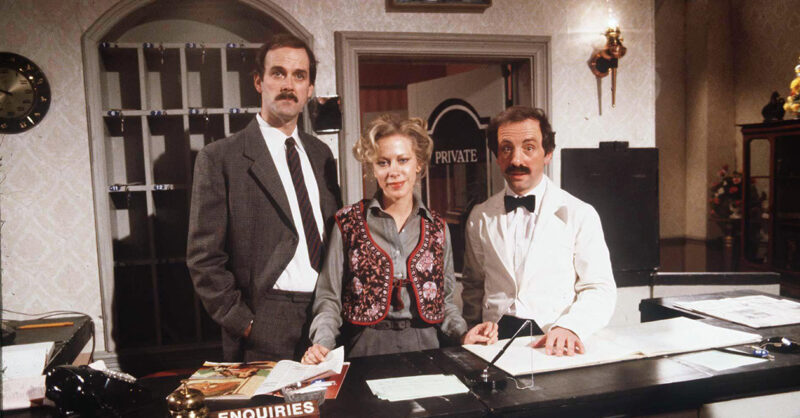 www.newstatesman.com
www.newstatesman.com
[A review from.the New Statesman](https://www.newstatesman.com/culture/books/2023/08/comic-story-british-comedy-review): > *Different Times* is a chronological survey of the last century of British screen comedy, from the first films of Chaplin through to the Ealing comedies, the Sixties satire boom, the alternative wave of the 1980s, up to today. It focuses mainly on our best-loved television shows and comedians while essaying a breezy social history: comedy as a means to interrogate Britain rather than vice versa. > > Unfortunately, the diagnosis that Stubbs offers is reliably hackneyed. Humour is a “consolation prize” of life in these dank, cramped islands. The British, by which he is anxious to make known he mainly means the English, are an unfortunate race: terminally frivolous, “miserably monolingual” and therefore xenophobic; where they do have depth it is usually only as stews of repression, bigotry and loathing. That such an immiserated isle produces such joyous comic talent is only lightly pondered. Instead, Stubbs advances further bloke-down-the-pub analysis of what ails us: declinism, deindustrialisation, post-imperial blues, etc. > > ... > > To laugh is not to take a moral position, or not solely so. A good joke toys with our assumptions and expectations, and liberates the unspoken. A really good one will tap into our prejudices not to propagate them but to jolt us into self-knowledge. As for how we approach the comedy of past, it should depend on what we need it for. A social historian who neglected how Dad’s Army or Morecambe and Wise captivated millions would be hindering their own enterprise. The ghastly relics that Stubbs describes, such as The Black and White Minstrel Show and Mind Your Language, also tell us much about their time. But in artistic or entertainment terms they are inert, as much because of how feeble they are as how offensive. > > Indeed, at the close of Different Times Stubbs argues that, partly thanks to political correctness and modern identity politics, comedy has become both kinder and better over the past decade as it rejects the crude stereotypes of old. Stand-ups such as Bethany Black and James Acaster and sitcoms such as Detectorists and This Country are “a haven of considerateness, diversity, multiculturalism, richer in comedic detail and observation”. It’s an appealing idea, but as Different Times shows, the very best comedy transcends its time not merely by being correct, let alone nice. Many of Britain’s greatest comic creations – Fawlty, Rising Damp’s Rigsby, Alan Partridge – are monsters, but, through the skill of those who wrote and performed them, retain across the ages the breath of something human.
It's been roughly a month since the last time I asked this question. So, what are you reading?
What I mean is, do you enjoy reading on your favourite sofa, or with a cup of tea? Maybe you only read if you can do it for 3-4 hours straight? How do you settle down to read a good book?